News
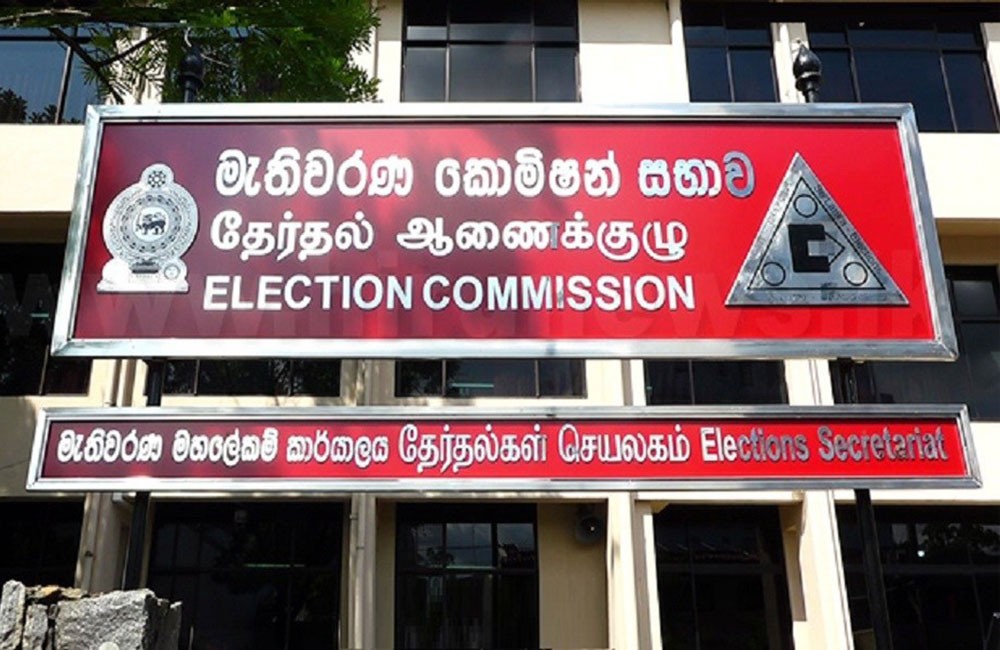
Acceptance of Nominations for Local Government Elections From Tomorrow
The acceptance of nominations for the upcoming local government elections will begin tomorrow, with the process closing on the 20th March at 12 noon.
Nominations can be submitted daily between 8:30 am and 4:15 pm at District Secretariats and Election Offices under the supervision of Returning Officers.
Candidates must deposit their nomination fee by the 19th at 12 noon.
The date for the local government elections will be announced on the 20th March.
Additionally, nominations for the Mannar, Poonakary, and Dehiattakandiya Pradeshiya Sabhas will be accepted from the 24th to the 27th March, with the deadline for the deposit of bonds set for the 26th at 12 noon.
A special security arrangement will be in place at all District Secretariats and Election Offices during the nomination period.
However, the National Election Commission announced that elections for the Kalmunai Municipal Council and Elpitiya Pradeshiya Sabha will not be held in this year's local government elections.
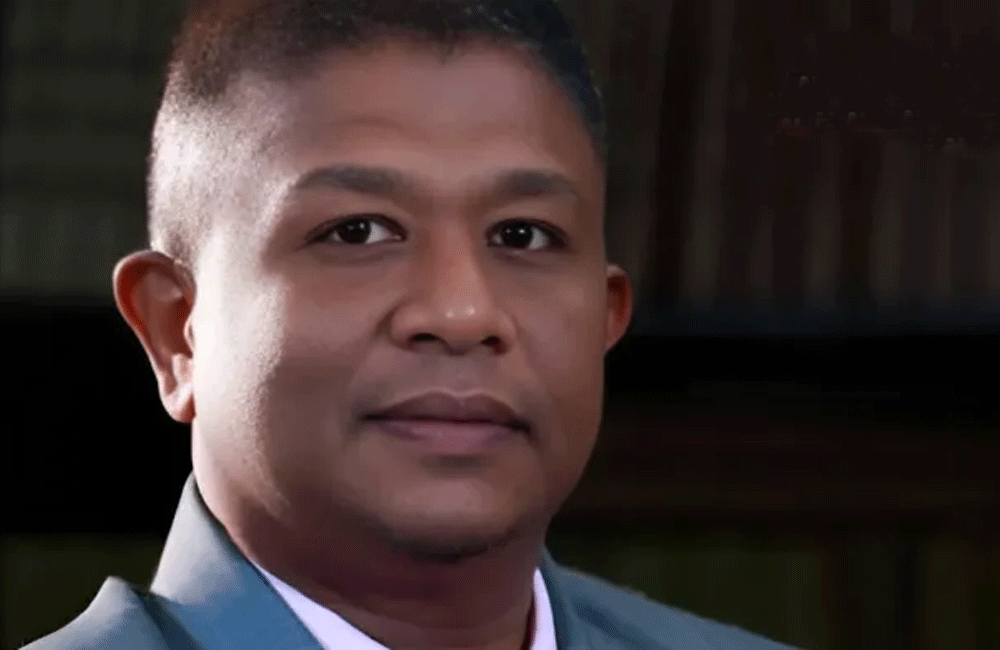
First resignation of New Parliament : SLMC MP resigns
Sri Lanka Muslim Congress (SLMC) National List MP, M.S. Naleem, has resigned from Parliament to contest the upcoming Eravur Urban Council election.
Naleem, the former Chairman of Eravur Urban Council, was appointed as the SLMC’s National List MP after the party secured one national list seat in the last general election.
His resignation marks the first parliamentary resignation of 2025.
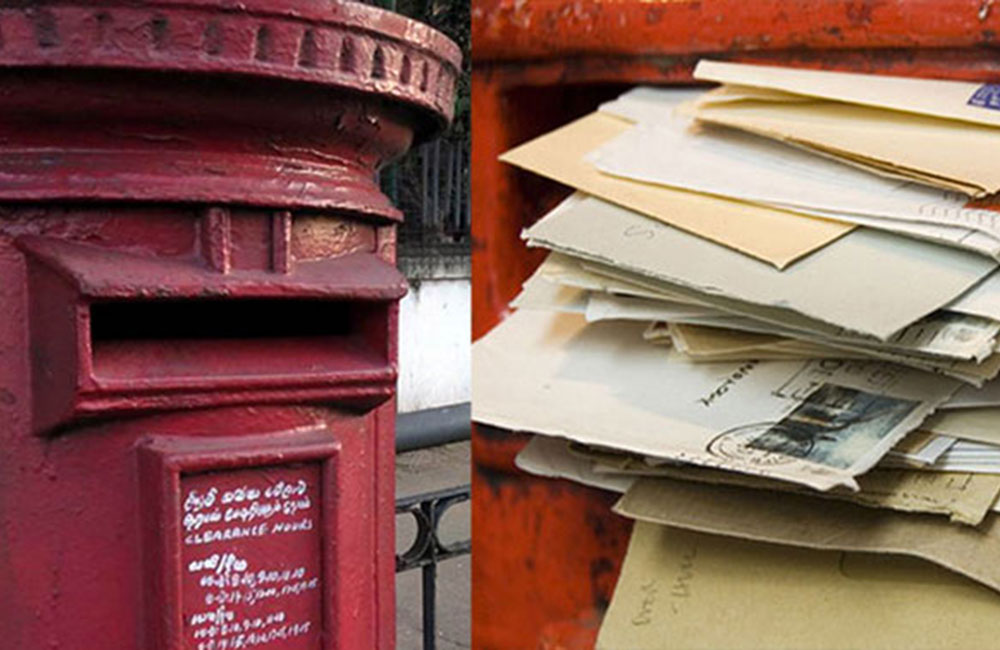
Postal workers to stage 48-hour token strike starting today?
The Postal and Telecommunications Officers’ Union and the United Postal Trade Unions Front (UPTUF) have announced a 48-hour token strike starting from 4.00 p.m. today (16) until March 18.
According to co-convener of the United Postal Trade Unions’ Front, Chinthaka Bandara the strike is being staged over seven key issues, including the urgent need to fill 7,500 vacancies within the Department of Posts.
“Currently, there is a shortage of 7,500 employees, including junior staff. The department is in dire straits in providing services at the minimum level. In some areas, letters are being delivered only every two days,” Bandara stated.
“A discussion with the Minister is scheduled an hour before the strike begins, and the unions will decide on the strike’s continuation based on the outcome of the discussion,” he added.
The two-day strike will take place on March 17 and 18, and Bandara warned that if a fair and proper solution is not found, the unions will escalate to more severe trade union action beyond these dates.
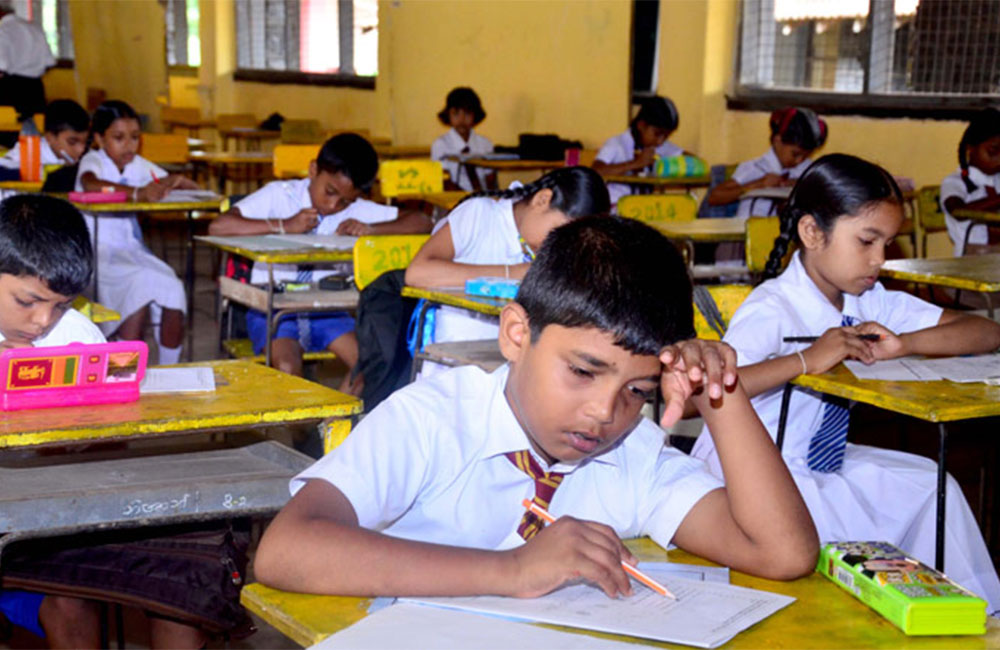
Cut-off Marks for Grade 5 Scholarship Exam Released
The cut-off marks for the admission of scholarship recipients to Grade 6 in 2025, based on the results of the 2024 Grade 5 Scholarship Examination, have been released.
These cut-off marks determine the eligibility of students for admission to various schools across the country.
The Ministry of Education in a statement said the schools that students can enter based on the results can be viewed by accessing
https://g6application.moe.gov.lk
The statement also added that an appeal process will be made available in the future.

Sri Lanka-born Gary Anandasangaree appointed Canada’s Justice Minister
Sri Lankan-born Gary Anandasangaree has been sworn in as Canada’s new Minister of Justice and Attorney General. He took oaths in the presence of newly appointed Prime Minister Mark Carney.
Anandasangaree, a long-time advocate for human rights and legal reform, takes on the role with a focus on strengthening Canada’s justice system. His appointment has been welcomed by the Canadian Bar Association (CBA), which expressed its support for his leadership.
“We look forward to working with him and his cabinet colleagues. We also want to thank former minister Arif Virani for his commitment to improving the justice system over the past few years, including his efforts to reduce judicial vacancies and strengthen access to justice,” the CBA said in a statement.
The association emphasized its ongoing collaboration with the government to uphold the rule of law and ensure a fair legal system for all Canadians. CBA members also pledged to contribute their expertise to help shape policies that reflect the evolving needs of society.
Anandasangaree, who has served as a Member of Parliament since 2015, has a strong background in law and human rights advocacy.
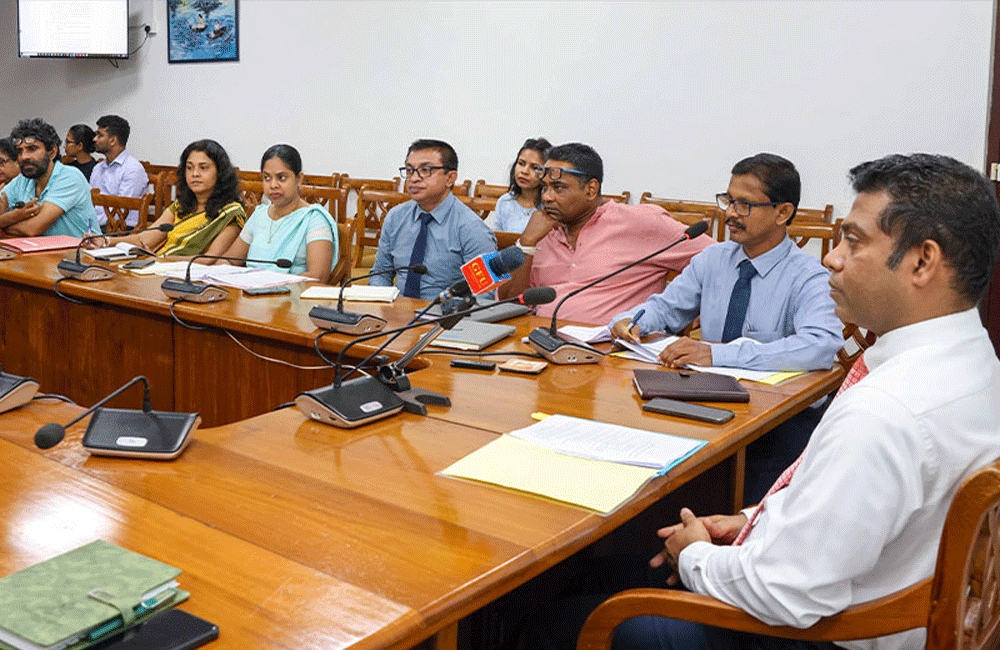
Sri Lanka to host a broadcasting symposium in June
A broadcasting symposium is to be jointly hosted in June by the Media Ministry and the Sri Lanka Broadcasters’ Guild.
Media Minister Dr. Nalinda Jayatissa chaired a recent meeting at the Government Information Department to discuss arrangements for the workshop with four sessions in a single day.
He told the gathering the planned symposium would address responsibilities and future goals in the field to promote it ethically and qualitatively.
The event is tipped to discuss the next five years, prevailing issues, copyright matters etc.
Organizing subcommittees are to be appointed to cover all matters relating to the symposium.
Online participation with financial support from the Telecommunications Regulatory Commission and a follow-up media workshop too, came under discussion.
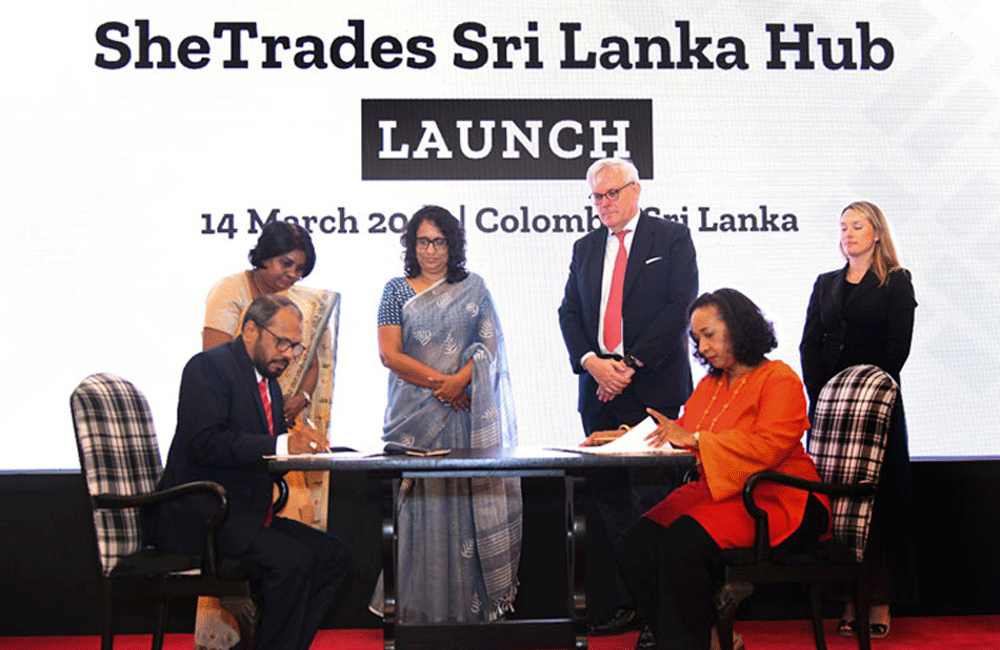
ITC, EDB and the UK Govt launch SheTrades Sri Lanka Hub to bolster support for women entrepreneurs
The Sri Lanka Export Development Board (EDB) and the International Trade Centre (ITC) launched the SheTrades Sri Lanka Hub on Friday (14), funded by the UK’s SheTrades Commonwealth+ Programme.
The hub will serve as a resource centre to equip women entrepreneurs with the skills, market access, and policy support required to successfully navigate international trade dynamics, fostering greater participation in global trade.
Sri Lanka’s export industry has demonstrated resilience, with merchandise exports reaching $16.17 billion in 2024, a 7.06% year-on-year increase according to the Sri Lanka Export Development Board (EDB), despite global economic challenges.
Women-led businesses in Sri Lanka contribute to over 25% of the small and medium-sized enterprise (SME) sector in-country yet face disproportionate challenges in securing international buyers and scaling operations, a situation faced by women entrepreneurs around the world. The Hub will provide tailored training, trade facilitation, and networking opportunities to bridge this gap and capitalize on the momentum of Sri Lanka’s economic growth and increase exports.
The SheTrades Sri Lanka Hub joins a global network of 20 SheTrades Hubs aroudn the world spanning Asia, Africa, Latin America, the Caribbean and the Middle East and North Africa.
At the launch, Hon. Prime Minister of Sri Lanka, Dr. Harini Amarasuriya, underscored the importance of women’s economic inclusion. She stated:
"Women have always played a pivotal role in Sri Lanka’s economic and social development. Yet, despite their immense contribution, structural barriers continue to limit their full participation in the economy. Our government is committed to breaking these barriers by fostering an inclusive economic environment where women can thrive as business leaders, entrepreneurs, and exporters."
ITC Executive Director, Pamela Coke-Hamilton, reaffirmed ITC’s commitment to gender-responsive trade policies. ‘Women’s economic empowerment and gender equality, as we all know from experience, are goals that we must keep working at daily. And SheTrades hubs, such as this one, are a fantastic network that ensures that women-led businesses have the support they deserve.
The SheTrades Hubs are a force for change, and a testament to the importance of having local solutions owned and led by local actors. Last year alone, they served over 1000 women-led businesses, from Kenya to Mauritius, Mongolia to Argentina.
I can’t wait to see what this SheTrades Hubs network will achieve next.’
Mangala Wijesinghe, Chairman and Chief Executive Officer of the Export Development Board (EDB), emphasized the initiative’s role in expanding market access for women-led businesses. Highlighting the importance of collaboration, he stated:
"As we move forward, collaboration will be key. Government agencies, international development partners, financial institutions, and private sector leaders will work together to ensure that the SheTrades Sri Lanka Hub becomes a lasting force for economic empowerment. Let us use this opportunity to break barriers, drive inclusive growth, and create a future where women entrepreneurs play a central role in shaping Sri Lanka’s export success."
In addition to capacity-building programmes, the Hub also advocates for gender-inclusive policies, ensuring that trade regulations are more accessible and beneficial for women entrepreneurs.
The British High Commissioner to Sri Lanka reaffirmed the UK’s commitment to gender-inclusive economic development, stating:
"The full economic participation of women is crucial for global prosperity and growth, and the UK is committed to supporting women and gender equality through our development work. I am pleased to celebrate the establishment of the SheTrades Sri Lanka Hub, which will become part of a broader support ecosystem for women-led businesses in Sri Lanka. This initiative will facilitate greater access to international markets and contribute to Sri Lanka’s economic growth agenda."
In December 2023, the SheTrades Commonwealth+ Programme organized a UK trade mission to Sri Lanka in collaboration with EDB, where 13 UK companies engaged in business-to-business meetings and company visits with women entrepreneurs in Colombo, Kurunegala and Jaffna. The trade mission generated over £100,000 in business leads within the first three months, with an estimated annual value that will reach over £600,000.
ITC will also facilitate two export procedure trainings in Colombo from 17 to 20 March to support women-led businesses navigate requirements to export to the UK. This follows the January launch of two UK export procedure handbooks for Sri Lankan women-led businesses – in agrifood as well as those in textiles and apparel, footwear, women’s accessories, and home décor.
With Sri Lanka’s service exports projected to grow steadily in 2025, integrating more women-led businesses into global supply chains is not just an economic necessity, but also a driver of sustainable development. The launch of the SheTrades Sri Lanka Hub reflects the commitment of EDB and ITC to position women entrepreneurs at the forefront of the country’s trade ambitions, ensuring a more diverse and resilient economic future.
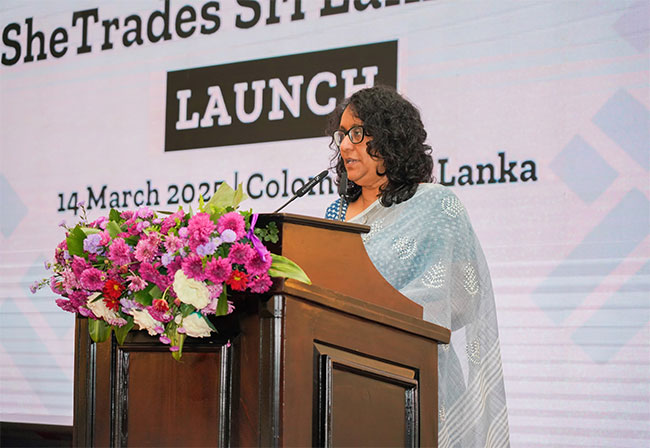
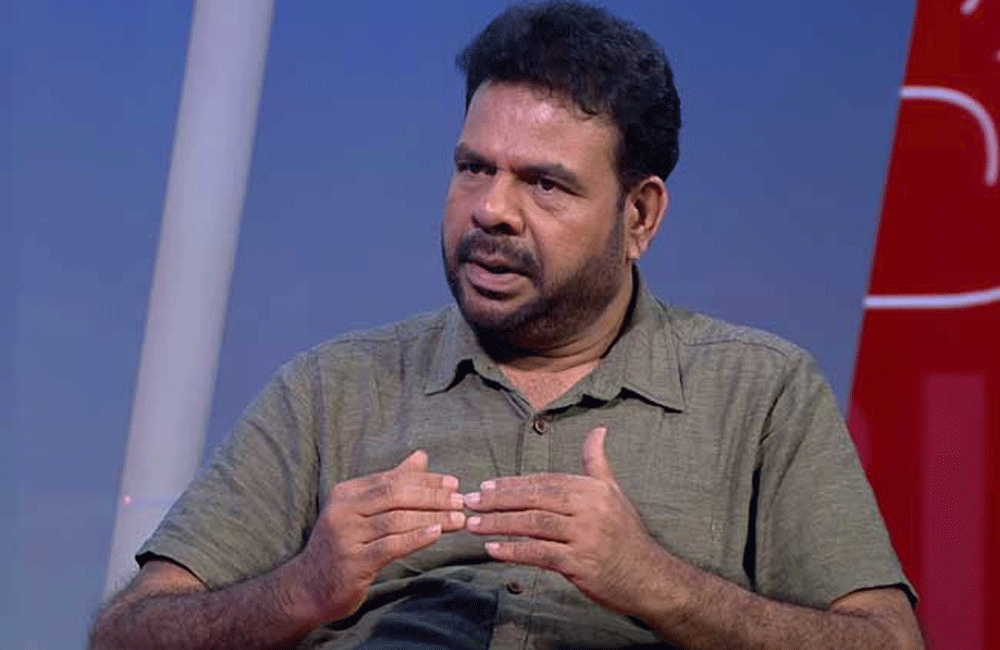
Animal census aimed at boosting agricultural productivity - Namal Karunaratne
Deputy Minister of Agriculture Namal Karunaratne says that the animal census is not being conducted with the aim of obtaining completely accurate data.
Participating in the Ada Derana ‘Big Focus’ program, he said that the data obtained from this is expected to be utilized to increase agricultural productivity.
‘Maybe we’ll have to look at this in another round. We’ll have to spend more time. We can get some ideas, but we can’t say that the data is 100% accurate. There must be relevant data for this. Then we can do a study on the animals in the country,’ he added.
The Deputy Minister further explained that the country lacks access to advanced technology and noted that it is not yet at that level of development. He also pointed out that implementing such technology would be costly and added that the government is conducting a participatory survey.
He further explained that even individuals who don’t require it will still be given the survey paper and added that, despite it not being necessary, the paper must be distributed.
adaderana.lk
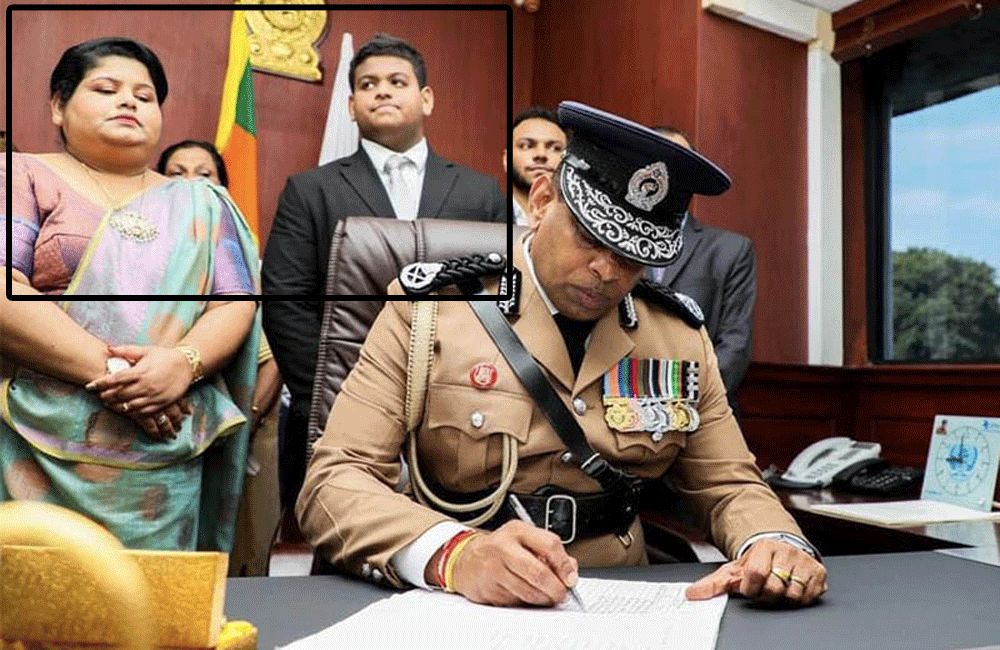
CID Records Statements From Deshabandu's Wife and Son
The Criminal Investigation Department (CID) has recorded statements from the wife and son of Deshabandu Tennakoon.
The statements were recorded at his residence in Hokandara.
The Matara Magistrate recently issued a warrant for the arrest of Deshabandu Tennakoon.
However, the police have not yet been able to locate him.
During the questioning, his wife and son stated that they do not know his whereabouts.
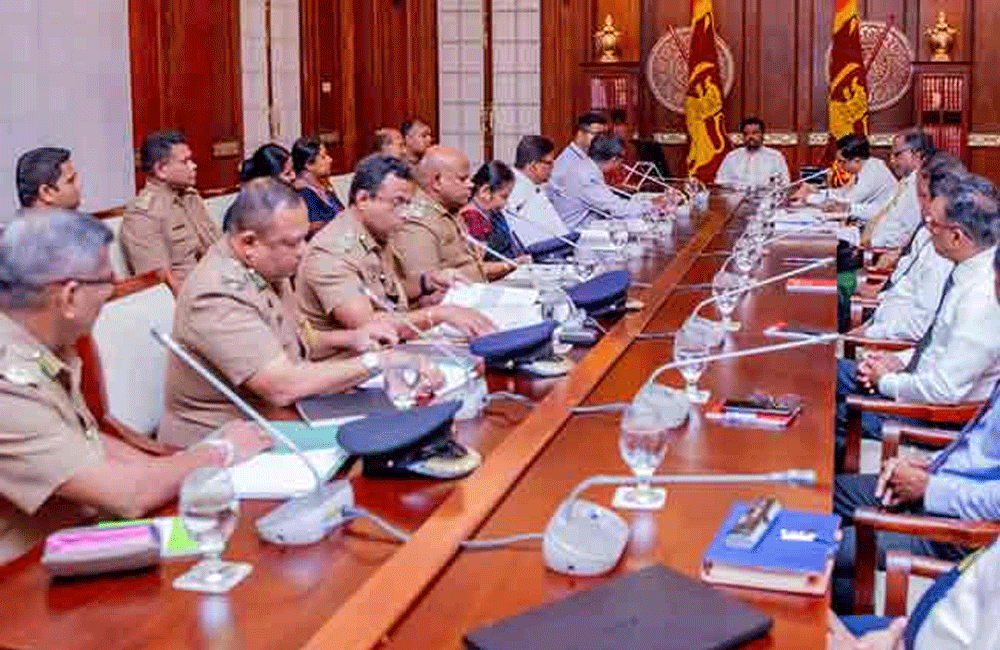
Effective regulation of alcohol : Discussion held
A meeting has been held between President Anura Kumara Dissanayake and officials of the Excise Department on the efficient and effective regulation of alcohol and other approved intoxicants within the country to support economic growth.
The discussion focused on increasing state revenue through proper regulation of the alcohol and tobacco industries, facilitating legal revenue generation, enforcing compliance with laws and regulations, implementing strong awareness programs against illegal alcohol, hazardous drugs, and psychoactive substances, preventing health risks associated with unregulated alcohol consumption, and ensuring public safety.
The meeting held at the Presidential Secretariat today further focused on addressing the current challenges faced by the Excise Department and achieving this year’s revenue targets.
A key point of the discussion was the integration of the department’s operations with the Inland Revenue Department to enhance efficiency and fairness in tax collection.
Discussions were held on revenue collection and protection through an effective decision-making and management mechanism in strategic and operational activities.
The necessity of formulating a human resource and technological development plan to enhance the efficiency of the Excise Department was also discussed.
The meeting was attended by Secretary to the President Dr. Nandika Sanath Kumanayake, Secretary to the Ministry of Finance Mahinda Siriwardana, Commissioner General of Excise Udaya Kumara Perera, and a group of Excise Department officials.
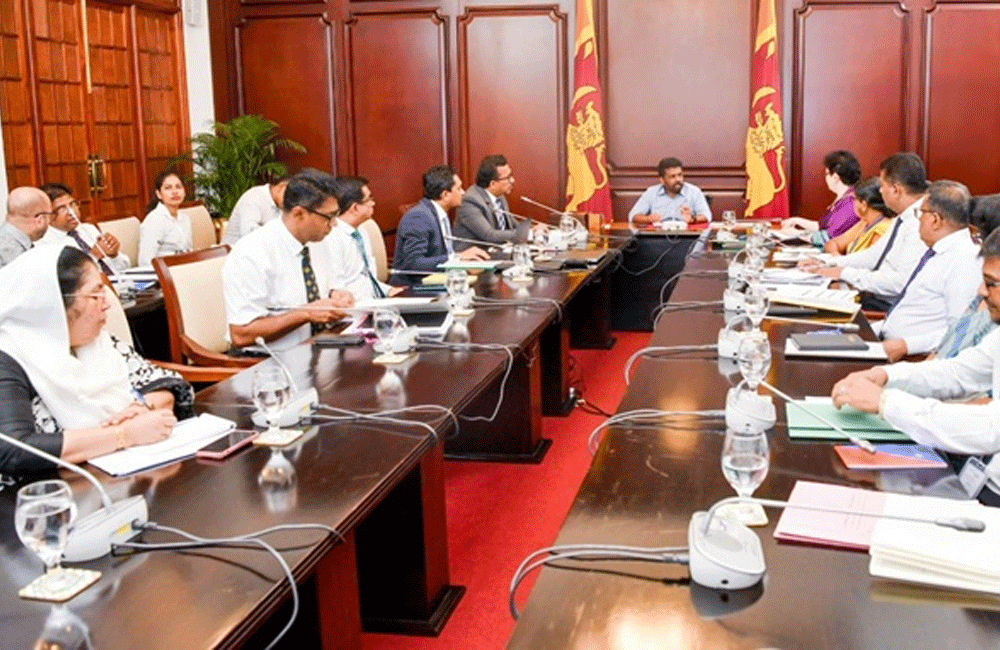
Import restrictions to strengthen local industries : Discussion held
President Anura Kumara Dissanayake has held a meeting with officials of the Ministry of Industry and Entrepreneurship Development focused on enhancing the efficiency, integration and development of the manufacturing sector to strengthen the national economy.
The meeting held at the Presidential Secretariat today (14 Mar), also addressed the challenges associated with these efforts.
Key topics included government-led initial investments and proper regulation to empower small and medium-scale entrepreneurs, the establishment of local small-scale industries within investment zones and challenges related to business loans faced by small and medium-scale enterprises.
During the meeting, President Dissanayake directed officials to expedite the release of lands allocated to the Ministry of Industry that have not been released so far.
Further discussions were held on maintaining and regulating import restrictions to strengthen local industries, prioritizing local suppliers in construction industry procurement and resolving issues in the gem and jewellery sector to ensure its full contribution to the national economy.
The President also instructed officials to swiftly implement tax exemptions for tourists to boost the gem and jewellery industry.
Minister of Industry and Entrepreneurship Development Sunil Handunnetti, Deputy Minister of Industry and Entrepreneurship Development Chathuranga Abeysinghe, Secretary to the President Dr. Nandika Sanath Kumanayake, Secretary to the Ministry of Industry and Entrepreneurship Development Thilaka Jayasundara and several other ministry officials attended the meeting.
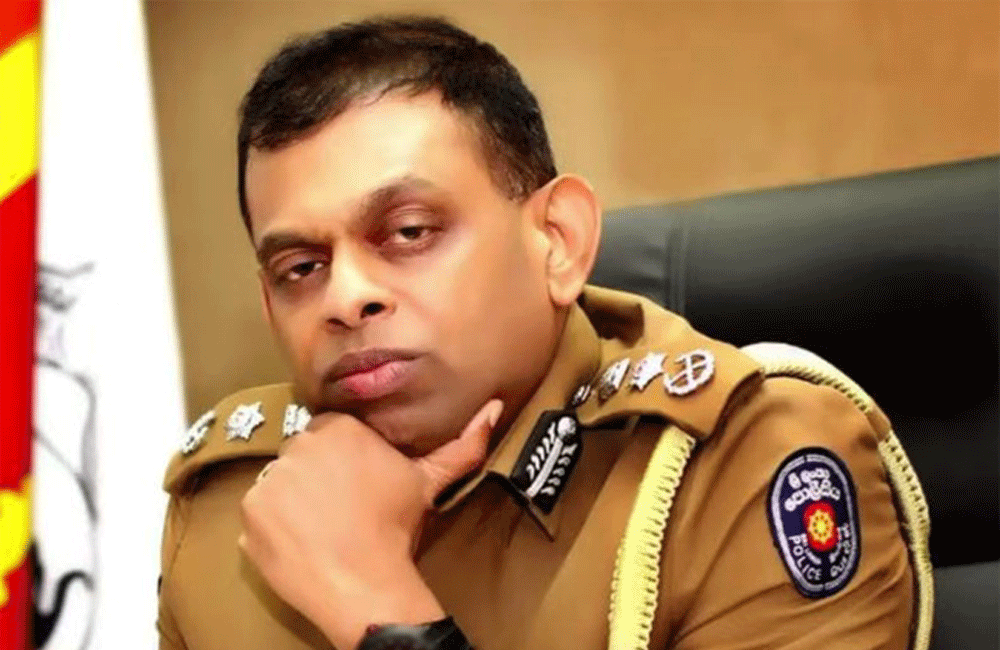
Open Warrant Issued To Arrest Deshabandu Tennakoon
The Matara Magistrate's Court has issued an open warrant for the arrest of Deshabandu Tennakoon.
A warrant was issued on February 28 by the Matara Magistrate's Court for the arrest of the suspended Inspector General of Police.
The warrant pertains to investigations into a shooting incident that occurred in front of a hotel in the Pelena area of Matara on December 31, 2023.
The court has also imposed a travel ban on Tennakoon, preventing him from leaving the country while the investigations are ongoing.
Page 135 of 656